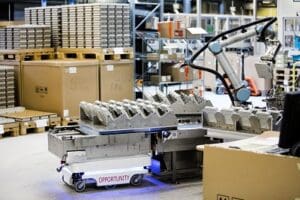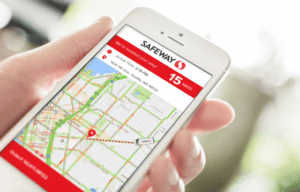 One of the things I like best about the user conference season, other than seeing new innovative technologies and learning from my peers, is the fact that I actually get to watch movies on my flights. I recently watched Bohemian Rhapsody, the based-on-reality movie about the life and times of Queen and its front man Freddie Mercury. Rami Malek’s transformation into Freddie Mercury, as well as the other actors portraying Brian May, Roger Taylor, and John Deacon, was pretty amazing (it must be the teeth). As I watched the movie, it brought back so many memories of how I initially got into Queen and how much I enjoy the band. After seeing Wayne’s World, and its epic Bohemian Rhapsody scene, my brother rushed out and bought every Queen CD he could get his hands on. And clearly, as his younger brother, I wanted to listen to the music he was listening to. While I knew a few songs (namely We Will Rock You and We Are the Champions), the more I listened, the more amazed I was. While Freddie Mercury was clearly one of the greatest singers and showmen of all time, Brian May is one of the most underrated guitarists out there. The movie certainly brought these points home and took me for a nice stroll down memory lane. And now on to this week’s supply chain news.
One of the things I like best about the user conference season, other than seeing new innovative technologies and learning from my peers, is the fact that I actually get to watch movies on my flights. I recently watched Bohemian Rhapsody, the based-on-reality movie about the life and times of Queen and its front man Freddie Mercury. Rami Malek’s transformation into Freddie Mercury, as well as the other actors portraying Brian May, Roger Taylor, and John Deacon, was pretty amazing (it must be the teeth). As I watched the movie, it brought back so many memories of how I initially got into Queen and how much I enjoy the band. After seeing Wayne’s World, and its epic Bohemian Rhapsody scene, my brother rushed out and bought every Queen CD he could get his hands on. And clearly, as his younger brother, I wanted to listen to the music he was listening to. While I knew a few songs (namely We Will Rock You and We Are the Champions), the more I listened, the more amazed I was. While Freddie Mercury was clearly one of the greatest singers and showmen of all time, Brian May is one of the most underrated guitarists out there. The movie certainly brought these points home and took me for a nice stroll down memory lane. And now on to this week’s supply chain news.
- Amazon in the news:
- North American robot shipments hit record
- Albertsons introduces real-time tracking of e-commerce orders
- Etsy becomes first global e-commerce company to become completely carbon neutral
- US to end preferential trade status for India, Turkey
- Walmart toughens delivery demands for suppliers
 Amazon has expanded an initiative that it rolled out in November on an invite-only basis to some Prime customers that gave them more control over deliveries. The program is called Amazon Day, and it enables Prime customers to choose which day of the week they want to have their package delivered. Customers will set a preferred delivery day, which they can change during the check-out process. However, the goal is to eliminate the amount of boxes and packaging that are used by the company; the program also gives customers more predictable delivery timeframes. All orders are bundled into one package to be delivered on delivery day. Amazon indicated that since its original testing began in November, the company has reduced packaging by “tens of thousands of boxes.”
Amazon has expanded an initiative that it rolled out in November on an invite-only basis to some Prime customers that gave them more control over deliveries. The program is called Amazon Day, and it enables Prime customers to choose which day of the week they want to have their package delivered. Customers will set a preferred delivery day, which they can change during the check-out process. However, the goal is to eliminate the amount of boxes and packaging that are used by the company; the program also gives customers more predictable delivery timeframes. All orders are bundled into one package to be delivered on delivery day. Amazon indicated that since its original testing began in November, the company has reduced packaging by “tens of thousands of boxes.”
We have written about Amazon’s innovations within the supply chain many times, especially as it comes to drones, robots, floating warehouses, and its move towards becoming a full-fledged global logistics company. The company has filed yet another patent in its forward-looking plans. This time, the company is developing robots that stay at customers homes and assist with package retrieval. The robot would wait inside the home until a package is delivered, then retrieve it from outside on its own. While Amazon has not officially announced a robot as the patent describes, the patent outlines that the robots could service individual homes, larger buildings like an apartment complex, or even an entire neighborhood.
 Speaking of robots, according to new statistics from the Robotic Industries Association (RIA), part of the Association for Advancing Automation, robots were shipped to the US in record numbers last year. The jump includes more non-automotive companies than ever before installing robots. According to the report, a total of 35,880 units were shipped in 2018, which was an increase of 7 percent over 2017. Shipments to non-automotive companies grew 41 percent to 16,702 shipments for the year. The main categories for growth were food and consumer goods (48 percent), plastics and rubber (37 percent), life sciences (31 percent), and electronics (22 percent). The automotive market saw 19,178 units shipped in 2018, which was a 12 percent decline from 2017. This marked the lowest percentage share (53 percent) for the automotive industry since 2010.
Speaking of robots, according to new statistics from the Robotic Industries Association (RIA), part of the Association for Advancing Automation, robots were shipped to the US in record numbers last year. The jump includes more non-automotive companies than ever before installing robots. According to the report, a total of 35,880 units were shipped in 2018, which was an increase of 7 percent over 2017. Shipments to non-automotive companies grew 41 percent to 16,702 shipments for the year. The main categories for growth were food and consumer goods (48 percent), plastics and rubber (37 percent), life sciences (31 percent), and electronics (22 percent). The automotive market saw 19,178 units shipped in 2018, which was a 12 percent decline from 2017. This marked the lowest percentage share (53 percent) for the automotive industry since 2010.
 E-commerce grocery continues to grow, and as it does, so do customers expectations of on time and accurate deliveries. To help meet customer demands, Albertsons has partnered with Glympse, a Seattle-based provider of location-sharing technology, to provide the ability to track in real-time the status of delivery orders as well as pick-up orders. When a customer checks out, they can opt in to receive notifications via text or email that provide key updates throughout the fulfillment process. Once their order leaves the store, they will receive a link to a live map of the delivery truck and the exact time of delivery. The service is available now on delivery orders at Albertsons, Safeway, Jewel-Osco, Vons, Randalls, Tom Thumb, and Pavilions.
E-commerce grocery continues to grow, and as it does, so do customers expectations of on time and accurate deliveries. To help meet customer demands, Albertsons has partnered with Glympse, a Seattle-based provider of location-sharing technology, to provide the ability to track in real-time the status of delivery orders as well as pick-up orders. When a customer checks out, they can opt in to receive notifications via text or email that provide key updates throughout the fulfillment process. Once their order leaves the store, they will receive a link to a live map of the delivery truck and the exact time of delivery. The service is available now on delivery orders at Albertsons, Safeway, Jewel-Osco, Vons, Randalls, Tom Thumb, and Pavilions.
 Sustainability within the supply chain has been a hot topic lately. Many global retailers and carriers have been racing to reduce their carbon footprint, with an end goal of becoming carbon neutral. Etsy, the e-commerce website focused on handmade and vintage items, announced that it is becoming the first global e-commerce company to offset 100% of carbon emissions generated by shipping. When someone buys something on Etsy, the company will invest in various environmental projects, including protecting over 10 million trees and supporting wind and solar projects that create clean energy. The initiative comes at no extra cost to customers.
Sustainability within the supply chain has been a hot topic lately. Many global retailers and carriers have been racing to reduce their carbon footprint, with an end goal of becoming carbon neutral. Etsy, the e-commerce website focused on handmade and vintage items, announced that it is becoming the first global e-commerce company to offset 100% of carbon emissions generated by shipping. When someone buys something on Etsy, the company will invest in various environmental projects, including protecting over 10 million trees and supporting wind and solar projects that create clean energy. The initiative comes at no extra cost to customers.
 President Trump has announced that the US is set to terminate the preferential trade status granted to India and Turkey. According to a statement from the US Trade Representative’s Office (USTR), “Washington intends to terminate India’s and Turkey’s designations as beneficiary developing countries under the Generalized System of Preferences (GSP) program because they no longer comply with the statutory eligibility criteria.” Under the GSP program, “certain products” can enter the US duty-free if countries meet eligibility criteria including “providing the United States with equitable and reasonable market access.” According to the USTR, India has failed to provide assurances that it would allow the required market access, and Turkey is sufficiently economically developed and no longer qualifies.
President Trump has announced that the US is set to terminate the preferential trade status granted to India and Turkey. According to a statement from the US Trade Representative’s Office (USTR), “Washington intends to terminate India’s and Turkey’s designations as beneficiary developing countries under the Generalized System of Preferences (GSP) program because they no longer comply with the statutory eligibility criteria.” Under the GSP program, “certain products” can enter the US duty-free if countries meet eligibility criteria including “providing the United States with equitable and reasonable market access.” According to the USTR, India has failed to provide assurances that it would allow the required market access, and Turkey is sufficiently economically developed and no longer qualifies.
 And finally, Walmart is toughening its delivery demands for suppliers in order to cut inventory while meeting the increasingly complex demands of e-commerce orders. Walmart’s supplier program already has fairly strict delivery demands in terms of on-time deliveries, with harsh penalties for suppliers that missed the thresholds. Under the new plan, suppliers that ship full trucks will need to deliver orders within a specified two-day timeframe 87 percent of the time, which is up from 85 percent. For those suppliers that only fill part of a truck, the new threshold will be 70 percent on-time, up from 50 percent. Walmart is also changing how it will penalize suppliers that meet these delivery demands.
And finally, Walmart is toughening its delivery demands for suppliers in order to cut inventory while meeting the increasingly complex demands of e-commerce orders. Walmart’s supplier program already has fairly strict delivery demands in terms of on-time deliveries, with harsh penalties for suppliers that missed the thresholds. Under the new plan, suppliers that ship full trucks will need to deliver orders within a specified two-day timeframe 87 percent of the time, which is up from 85 percent. For those suppliers that only fill part of a truck, the new threshold will be 70 percent on-time, up from 50 percent. Walmart is also changing how it will penalize suppliers that meet these delivery demands.
That’s all for this week. Enjoy the weekend and the song of the week, Queen’s Hammer to Fall, live from Live Aid.

















